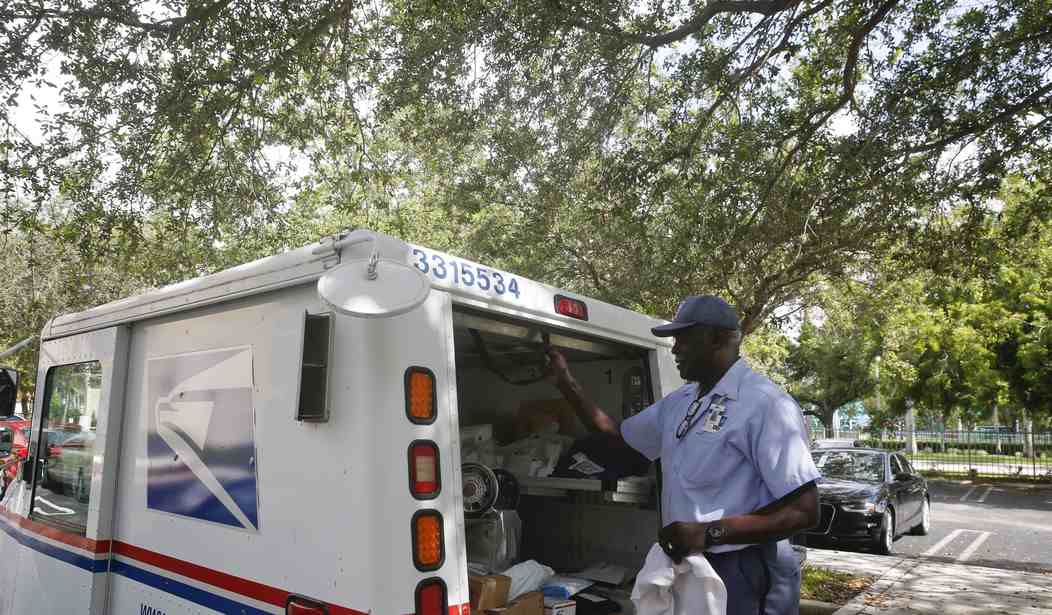I really thought we had this all straightened out back in February. As part of the revamp of the US Postal Service intended to put them on a long-term, profitable footing, the suggestion was made that the service should convert its vast fleet of vehicles to electric cars and trucks. The USPS passed on that idea because they had already begun ordering gas vehicles and the change would drive their costs back up. But now, Democrats in Congress are attempting to force the issue with a new bill designed to send the Post Office back to the drawing board and see if they can make them convert to electric vehicles anyway. Just when you thought it was safe to go back in the water they yank the rug out from underneath you again. (Government Executive)
The U.S. Postal Service could soon face its strongest pressure yet to pause its contract to overhaul its fleet, with House Democrats scheduling a preliminary vote to require the mailing agency to further assess purchasing electric vehicles.
Rep. Carolyn Maloney, D-N.Y., who chairs the House Oversight and Reform Committee, will introduce and hold a vote on the Ensuring an Accurate Postal Fleet Electrification Act on Wednesday. The measure would invalidate the existing environmental impact study USPS conducted on its contract with Oshkosh Defense to buy primarily internal combustion engine vehicles and force it to conduct a new one. Oshkosh will manufacture up to 165,000 trucks and earn billions of dollars under the contract, though only 10% of the vehicles will be electric under postal management’s existing commitment.
The Postal Service was required to conduct an environmental impact study as part of the process of modernizing its vehicular fleet, which they did. The contract for the new vehicles, 90% of which would have internal combustion engines, was awarded to Oshkosh Corporation, a maker of specialty trucks and other vehicles. It seemed like a natural fit because the Post Office almost entirely uses specialty vehicles with features designed specifically to make mail delivery faster and more efficient. Also, Oshkosh would give the USPS a lower bulk rate in exchange for ordering so many of them.
But now there are environmental groups claiming that the service’s environmental review was inadequate and flawed. If this new bill is passed into law, it would halt the fleet replacement work and send the USPS back to do yet another environmental review, presumably delivering results that would favor an all-electric fleet. The Biden administration is taking the side of the environmentalists, of course.
It seems obvious that this entire issue has little to do with the environmental review. It’s all about the climate change optics. The government is supposed to go to all-electric vehicles in the name of saving the planet whether it’s the best option or not. But as we’ve discussed here in the past, the purpose of this entire exercise was supposed to keep the service profitable so they wouldn’t have to keep coming back to the government and asking for bailouts.
Electric vehicles are, on average, more expensive than those with internal combustion engines. They also tend to have a more limited range before needing to look for a recharging station. And if all of the trucks will need to be hooked up to power outlets every night, the utility bills for the Post Office will rise. On top of that, they will be using a lot more electricity, the vast majority of which is generated by burning natural gas or other fossil fuels. So how is this a win for the climate crowd?
Everyone was supposedly on board with having a plan to “fix” the Post Office on a long-term basis. It was a bipartisan goal. But Congress is currently acting as if they are bound and determined to find a way to make the USPS fail yet again.







Join the conversation as a VIP Member